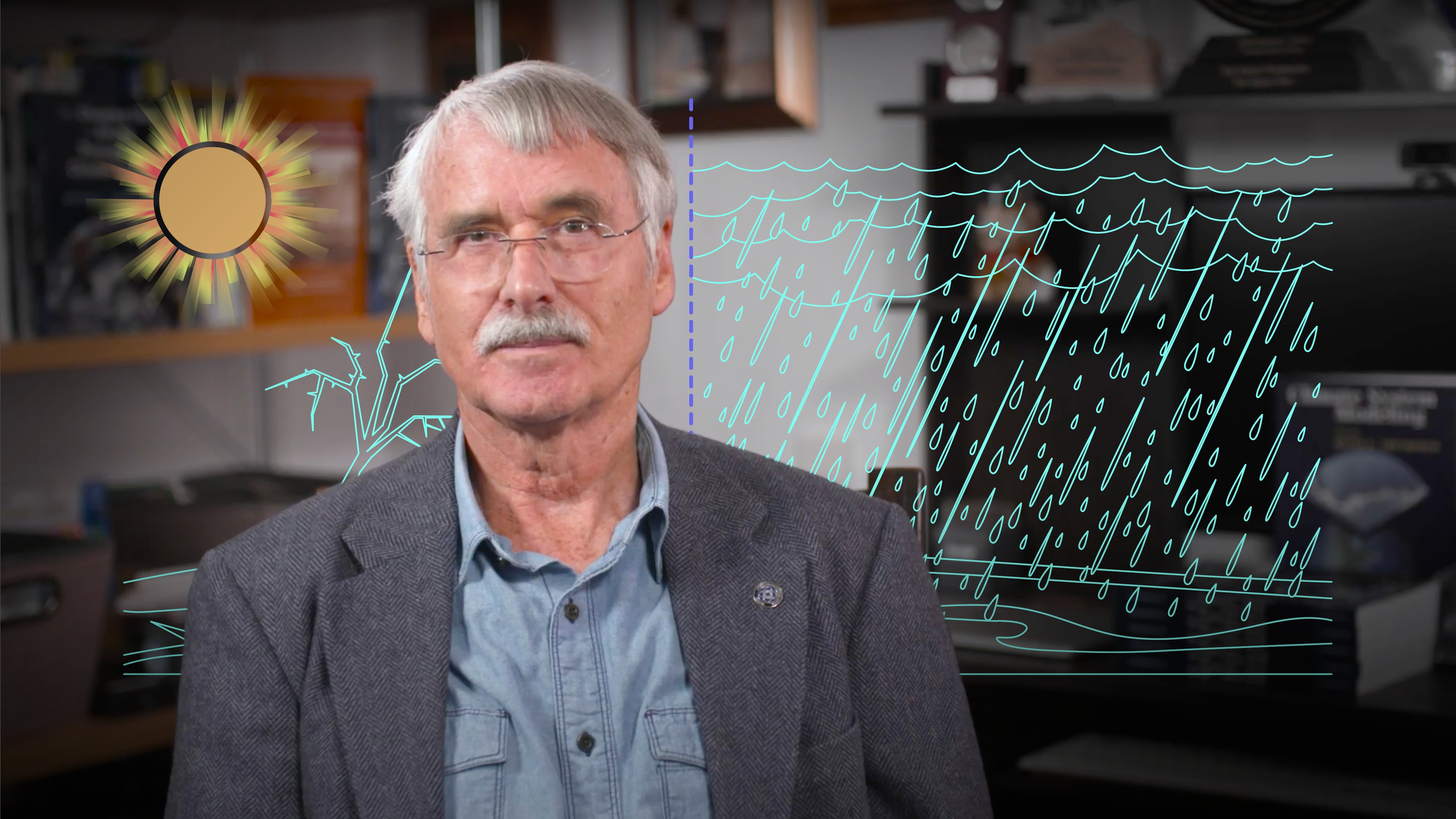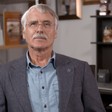
IPCC Projections

Kevin Trenberth
Former Coordinating Lead Author of the IPCC
In the previous video, Kevin outlines the differences between the effects of 1.5 vs 2 degrees warming. In this video, Kevin discusses the various emissions scenarios pathways as projected by the IPCC. In doing so, Kevin also elaborates on the multitude of physical threats that accompany these pathways.
In the previous video, Kevin outlines the differences between the effects of 1.5 vs 2 degrees warming. In this video, Kevin discusses the various emissions scenarios pathways as projected by the IPCC. In doing so, Kevin also elaborates on the multitude of physical threats that accompany these pathways.
It is clear climate change is having an impact on the planet, every year climate events seem to get bigger and last longer. An IPCC report highlighted the importance of attempting to limit warming to 1.5 degrees vs 2 degrees. With every incremental increase in temperatures, we see increased hot extremes, more extreme storms, worsening droughts, rising oceans, loss of species, food shortages, health risks and increased poverty and displacement. It is imperative that everyone on the planet attempts to limit and slow down the rate of warming.
Key learning objectives:
Outline how the future of planet Earth might look
Outline the consequences of warming
Now free to watch
This video is now available for free. It is also part of a premium, accredited video course. Sign up for a 7-day free trial to watch more.
What will the future look like?
The IPCC have assessed how the planet will look in several reports. In its most recent report AR6, the IPCC established a set of future scenarios called Shared Socioeconomic Pathways (SSPs) to examine how global society, demographics and economics might change over the next century. There are 5 SSPs:
- A world of sustainability-focused growth and equality (SSP1)
- A “middle of the road” world where trends broadly follow their historical patterns (SSP2)
- A fragmented world of “resurgent nationalism” (SSP3)
- A world of ever-increasing inequality (SSP4)
- A world of rapid and unconstrained growth in economic output and energy use (SSP5)
The IPCC then integrated the SSPs with Representative Concentration Pathways (future emissions scenarios) to produce a wide range of possible outcomes.
All scenarios lead to higher global surface temperatures by the end of the century, but there are variances:
- 1.0°C to 1.8°C under a very low greenhouse gas emissions scenario
- 2.1°C to 3.5°C higher in the intermediate scenario
- 3.3°C to 5.7°C higher under the very high greenhouse gas emissions scenario
The IPCC expects that global warming will surpass 2°C during the first half of the 21st century under the top two scenarios. Given the commitments at COP26 in late 2021, the warming by 2100 is assessed to be about 2.7°C.
The AR6 report emphasised that “Unless there are immediate, rapid and large-scale reductions in greenhouse gas emissions, limiting warming to 1.5C will be beyond reach.”, and because no such reductions are underway or even have prospects, 1.5C will likely be passed by about 2030 to 2032.
What will the consequences of this warming be?
The longer we wait to cut the release of greenhouse gases, the more severe and widespread the harm will be. The IPCC’s working group II emphasises 9 major climate risks:
- Death or harm from coastal flooding
- Harm or economic losses from inland flooding
- Extreme weather disrupting electrical, emergency or other systems
- Extreme heat, especially for the urban and rural poor
- Food insecurity linked to warming, drought or flooding
- Water shortages causing agricultural or economic losses
- Loss of marine ecosystems essential to fishing and other communities
- Loss of terrestrial and inland water ecosystems, through agricultural and ecological drougts
Now free to watch
This video is now available for free. It is also part of a premium, accredited video course. Sign up for a 7-day free trial to watch more.

Kevin Trenberth
There are no available videos from "Kevin Trenberth"






















